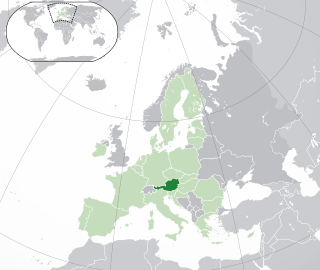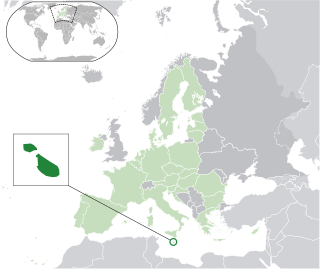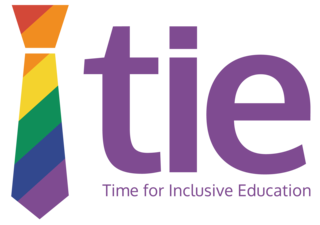Same-sex marriage is legal in all parts of the United Kingdom. As marriage is a devolved legislative matter, different parts of the UK legalised at different times; it has been recognised and performed in England and Wales since March 2014, in Scotland since December 2014, and in Northern Ireland since January 2020. Civil partnerships, which offer most, but not all, of the rights and benefits of marriage, have been recognised since 2005.

Rights affecting lesbian, gay, bisexual, and transgender (LGBT) people vary greatly by country or jurisdiction—encompassing everything from the legal recognition of same-sex marriage to the death penalty for homosexuality.

Lesbian, gay, bisexual, and transgender (LGBT) rights in Austria have advanced significantly in the 21st century. Both male and female same-sex sexual activity are legal in Austria. Registered partnerships were introduced in 2010, giving same-sex couples some of the rights of marriage. Stepchild adoption was legalised in 2013, while full joint adoption was legalised by the Constitutional Court of Austria in January 2015. On 5 December 2017, the Austrian Constitutional Court decided to legalise same-sex marriage, and the ruling went into effect on 1 January 2019.

The rights of lesbian, gay, bisexual, and transgender (LGBT) people in the United Kingdom of Great Britain and Northern Ireland are among the most advanced in Western Europe.

Lesbian, gay, bisexual, and transgender (LGBT) rights in New Zealand are some of the most extensive in the world. The protection of LGBT rights is advanced, relative to other countries in Oceania, and among the most liberal in the world, with the country being the first in the region and thirteenth in the world to enact same-sex marriage.
The legal status of same-sex marriage has changed in recent years in numerous jurisdictions around the world. The current trends and consensus of political authorities and religions throughout the world are summarized in this article.

Ian Keith Hunter is an Australian politician, representing the South Australian Branch of the Australian Labor Party in the South Australian Legislative Council since the 2006 state election. Hunter served in the Cabinet of South Australia from October 2011 to 2018.

Lesbian, gay, bisexual and transgender (LGBT) rights in Malta rank among the highest in the world. Throughout the late 20th and early 21st centuries, the rights of the LGBT community received more awareness and same-sex sexual activity was legalized on 29 January 1973; it was already dormant by the 1890s.

In 2007 Nepal repealed the laws against gay sex and introduced several laws which explicitly protected sexual orientation. The Nepalese Constitution now recognizes LGBT rights as fundamental rights. In March 2023, the Supreme Court of Nepal ordered the Nepali government to legally recognize same-sex marriage.

Lesbian, gay, bisexual, transgender (LGBT) rights in Scotland are generally in line with the rest of the United Kingdom, which have evolved extensively over time and are now regarded as some of the most progressive in Europe. In both 2015 and 2016, Scotland was recognised as the "best country in Europe for LGBTI legal equality".

Lesbian, gay, bisexual, transgender (LGBT) rights in Northern Ireland have traditionally been slower to advance than the rest of the United Kingdom, with the region having lagged behind England, Scotland, and Wales. Northern Ireland was the last part of the United Kingdom where same-sex sexual activity was decriminalised, the last to implement a blood donation “monogamous no waiting period” policy system for men who have sex with men and, after intervention by the Parliament of the United Kingdom, the last to allow same-sex marriage. Compared to the neighbouring Republic of Ireland, all major LGBT rights milestones had been reached earlier in Northern Ireland, with the exception of same-sex marriage. Homosexuality was decriminalised in Northern Ireland a decade earlier and civil partnerships were introduced six years earlier.
Same-sex marriage in Scotland has been legal since 16 December 2014. As family law is not reserved to the Parliament of the United Kingdom, the Scottish Parliament has legislative competence to make changes to the law on marriage. A same-sex marriage law was approved by the Scottish Parliament in February 2014 and received royal assent on 12 March 2014. It came into effect on 16 December with many civil partners converting their relationships into marriages, while the first same-sex marriage ceremonies occurred on 31 December 2014. Civil partnerships for same-sex couples have been legal in Scotland since 2005.

Section 28 or Clause 28 was a legislative designation for a series of laws across Britain that prohibited the "promotion of homosexuality" by local authorities. Introduced by Margaret Thatcher's Conservative government, it was in effect from 1988 to 2000 in Scotland and from 1988 to 2003 in England and Wales. It caused many organisations such as lesbian, gay, bisexual and transgender student support groups to close, limit their activities or self-censor.

Lesbian, gay, bisexual, and transgender (LGBT) persons in Bermuda, a British Overseas Territory, face legal challenges not experienced by non-LGBT persons. Homosexuality is legal in Bermuda, but the territory has long held a reputation for being homophobic and intolerant. Since 2013, the Human Rights Act has prohibited discrimination on the basis of sexual orientation.

Lesbian, gay, bisexual, and transgender (LGBT) persons in the Cayman Islands may face legal challenges not experienced by non-LGBT residents. Both male and female same-sex sexual activity are legal in the Cayman Islands. Despite anti-gay attitudes expressed by certain members of the government, social acceptance by the Caymanian public has been known to be some of the best in the Caribbean. Some have attributed this to the strong British influence in the territory.
The LGBT Network was an LGBT rights charity based in Scotland.
The Coalition for Equal Marriage is a British campaign group created in 2012 by Conor Marron and James Lattimore, a same-sex couple, to petition in support of civil marriages for gay couples. The Coalition for Equal Marriage was created in response to the Coalition for Marriage, a Christian group campaigning against same-sex marriage in the United Kingdom.

The Marriage and Civil Partnership (Scotland) Act 2014 is an Act of the Scottish Parliament which allows same-sex couples to marry in Scotland since 16 December 2014.

Time for Inclusive Education (TIE) is a charity and which has a stated aim of addressing prejudice and bullying of lesbian, gay, bisexual and transgender (LGBT) young people with education in Scotland’s schools. The charity is overseen by a Board, chaired by Rhiannon Spear and Tiffany Kane, and delivers services in schools across Scotland.














